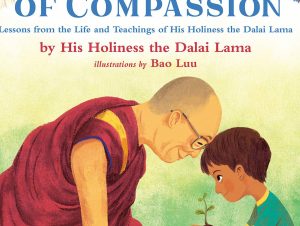Sunday mornings are the same old grind for me: groggily hit the snooze button at least three times, push my arms into a semi-ironed top, struggle to find matching socks, and hurry off to battle the tide of fellow civilians attempting to squeeze their way into an open MTR (Mass Transit Railway) door . . . all for the sake of tutoring my student on Hong Kong Island. In fact, teaching the 12-year-old English is fun, and often triggers flashbacks to my own schooldays—she’s at the age where most pre-teens realize their mums are awfully strict and school isn’t nice any longer because your BFF (best friend forever) has found another confidant.
Then, a week or two ago, in the midst of complaining about her geography teacher, she suddenly piped up and exclaimed, “I get that religion is good. But maybe not for me!” I stared at her somewhat incredulously and asked her what she meant. She explained that her Secondary 1 religion classes focused more on Christianity, and that doing certain things was “good” and that the student had to do “this-this-that-that” (with hand gestures!) to be considered devout in that particular religion.
I was surprised: Why should a school, one that is public and secular, try to instill religious preferences in its students?
But the situation is prevalent not only in Hong Kong. An article published this month in Al Jazeera (America) with the somber title “School to parents: Does your son have to be Buddhist?” speaks volumes about the current religious ambience in classrooms, . . . in so-called modern, free, thought-provoking, individuality-promoting 21st-century America.
C. C. (the alias used in the article) became “despondent” and one day told his mother, Sharon Lane, that “he’d rather die than go to school.” Ethnically Thai, C. C. was adopted by Sharon, who is a Buddhist, and they now live in Sabine, Louisiana. Her son’s apparently strange withdrawal from school activities and general aversion to attending were explained partly by his stepsister Anna, who claimed their science test had bonus point questions like “Isn’t it amazing what the _____ has made”!!! The answer for a few extra credits? “Lord.”
Negreet High School is a public K-12 school and caters to a population of about 24,000 residents (quickfacts.census.gov, 2013). Digging deeper into the school’s background, C. C.’s parents found that it had a religious predilection—Christian-themed posters, prayers at mealtimes, and “Bible verses scrolled on an electronic marquee in front of the school.” Frustrated, Sharon called the situation “abusive” and said that sending her children to school should mean receiving an education, “not an indoctrination.” The US Constitution requires a separation of state and religion, which was clearly being overlooked in this situation.
When Sharon revealed the matter to the superintendent of the Sabine Parish School Board, Dr. Sara Ebarb, instead of receiving unbiased support, she was given uncalled-for advice. Ebarb freely commented on the situation, asking Sharon to take note of where she lived, saying that it was “in the Bible Belt.” Not only did Sharon have to argue that her adopted son was raised Buddhist, only to be told that if they lived in a foreign country they’d have to get used to its religion, but she also had to face the bewildering question: “Does he have to be Buddhist?”
Keen to put an end to such proselytism, the Lanes sued the school with the help of the American Civil Liberties Union (ACLU) and the ACLU of Louisiana. As a result, the Sabine Parish School Board released a statement agreeing to adhere to federal laws and to give their students a “high quality education in a positive learning environment.”
Not only Buddhists, but others are also coming under pressure from various schools in the US, whether affiliated with a particular religion or not.
In 2013, Mississippi’s Northwest Rankin High School made headlines when students claimed they were forced to “attend assemblies about Christianity and the power of Jesus Christ.” A lawsuit filed by the plaintiffs and the American Humanist Association (AHA) outlined that the school held compulsory “Christian assemblies” and asked parents and teachers to guard the exit points so that students couldn’t leave. Former student Alexis Smith also added that an administrator had “harassed several students who attempted to leave” (The Huffington Post). The lawsuit revealed other disturbing efforts by the school to preach Christianity as well.
A statement titled “Unconstitutional Christian assembly at Northwest Rankin High School,” published by the AHA before the lawsuit, said that the school gathering was “unquestionably a serious violation of the separation of church and state required by the Constitution. . . . The fact that this event was mandatory, and was promoted by the school principal, only compounded the Establishment Clause violation.”
Another example of pro-Christian activism in schools is a campaign called “The Thaw,” created by participants in the “Reach America” organization, which focuses on building leaders in the Christian community. One of their projects was a video in which teenagers speak up about the “unorthodox” activities of kids in schools today. I found the video rather dramatic! The teenagers speak out about how “Christian youth are living in an increasingly anti-Christian culture.” The youngsters appear to negate more liberal school systems, announcing with unblinking confidence that “we are servants, encouragers. We are learning to hear God’s voice and adjust our lives to his way.” The name given to the movement, “The Thaw,” is a metaphorical way of claiming that America needs to be thawed out from its current state. The young adults end the video with the following: “Together, looking to Christ as a strength, The Thaw will be complete. And America will be one nation under God . . . again.”
With such strong emotions among both religious and non-religious groups, can any opposition as such exist in an academic environment without matters going sour every other semester? Young people are entitled to explore and find their own spiritual path—or not—which is a choice they should be trusted to make themselves. Guidance can be helpful even though they may not wish to act on it, but mandatory rules forced upon school-goers can only spark unwanted tension between different religious groups. One can be Buddhist, Christian, Muslim, an atheist, or find one’s own set of beliefs, but this self-exploration should be set apart from education if a healthy academic environment is to be maintained.
I’ve filled in my opinion—what is yours? 10 bonus points! And there is no “correct” answer.
See more















